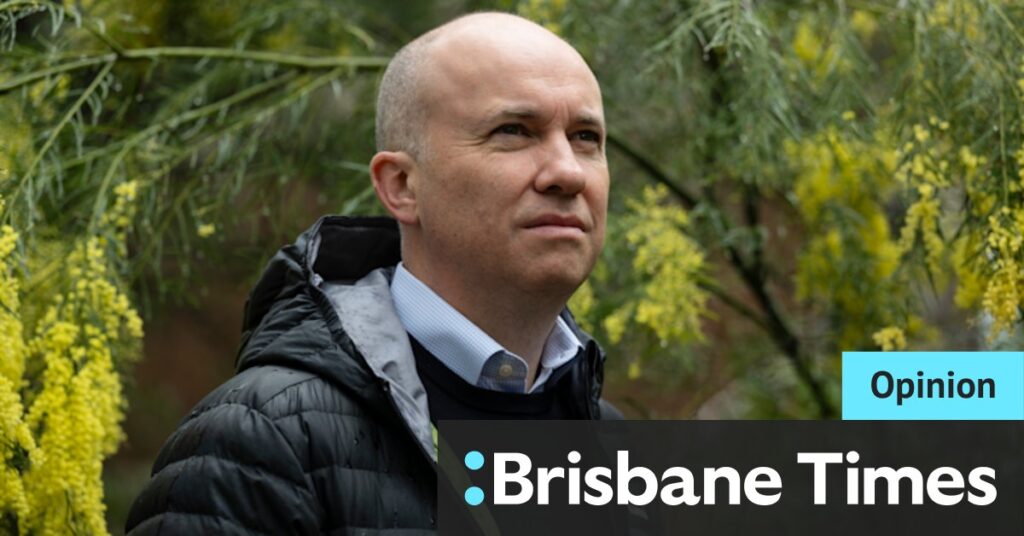
Matt Kean, the former New South Wales Treasurer, has taken on a pivotal role as the chair of the Climate Change Authority (CCA), an independent statutory advisory body. Recently, the Albanese government adopted the CCA’s recommendations to reduce emissions by 62-70 percent by 2035, aiming for net zero by 2050. This significant shift in policy underscores Kean’s influence and the growing bipartisan recognition of climate change’s urgency.
In a candid interview, Kean reflected on his journey from a Liberal Party member to a leading advocate for climate action. “I have always believed in the science of climate change,” he said, recalling his appointment as Minister for Energy and Environment by former NSW Premier Gladys Berejiklian. “The more I learned from scientists, economists, and engineers, the more convinced I became of the environmental imperatives and economic opportunities.”
Personal Experiences Fuel Commitment
Kean’s commitment to climate action was further solidified during the catastrophic bushfires of January 2020. As he left the delivery suite after the birth of his first child, he was confronted by a city shrouded in smoke. “It was just not normal,” he recounted. “That wasn’t my childhood, and I didn’t want it to be my son’s or anyone else’s.” This personal experience propelled him to leverage his position to drive change.
Despite his efforts, Kean acknowledged the challenges within his party. “While Scott Morrison carried a lump of coal in parliament, at the NSW level, we demonstrated that the Liberals can be economically rational on this issue,” he noted. The NSW government, under Berejiklian, showed that renewable energy zones could drive regional development, garnering support even from the National Party leader, John Barilaro.
The Path to Net Zero
Kean explained the science behind net zero in straightforward terms: “Carbon dioxide acts like a blanket around the Earth, capturing heat. The more fossil fuel emissions we release, the more we disrupt our weather systems.” Under the Paris Agreement, Australia committed to reducing emissions, with targets updated every five years, aiming for net zero by 2050.
Despite internal party conflicts, Morrison’s government embraced net zero, setting a target of a 28 percent reduction below 2005 levels by 2030. By the time of the 2022 election, this target increased to 43 percent, reflecting growing public support. “Australia is on the frontline of climate change,” Kean emphasized, highlighting the electoral importance of these targets.
Challenges and Criticism
Kean’s role as chair of the CCA involves navigating diverse stakeholder interests. “My wife was worried I was having a heart attack trying to hold the whole thing together,” he admitted. Despite the CCA’s ambitious targets, 60 climate scientists criticized the government for not achieving the highest possible ambition. Kean acknowledged their concerns but stressed the challenge of starting from a high-emitting economy.
“To hit our 2035 target, we have to slash our per-capita emissions by 76-81 percent. This would make Australia the biggest improver among the nations we have looked at.”
Kean remains optimistic about bipartisan support, despite some Liberal Party members opposing net zero. “The community has already decided on this issue,” he stated, citing the widespread adoption of solar panels, electric vehicles, and other technologies. “Some politicians are saying, ‘We don’t want to watch Netflix, so let’s go and build a Blockbuster Video chain again.’ It just doesn’t make any sense.”
Economic Opportunities and the Future
Contrary to claims that net zero is economic suicide, Kean argued for the economic benefits of transitioning to renewables. “The economic modeling shows a huge net benefit to the nation,” he said, highlighting job creation and infrastructure development. “84 percent of the world’s economy has signed up to net zero. Our major trading partners will reduce their demand for coal as they shift to renewables.”
Kean envisions Australia as a leader in renewable energy. “We can be the Saudi Arabia of solar power,” he asserted, echoing tech entrepreneur Mike Cannon-Brookes. “We can be at the forefront of this next industrial revolution, underwrite a new era of economic prosperity.”
Despite rising electricity bills, Kean attributed this to insufficient renewables in the system. “The most important thing we can do is protect ourselves from global shocks by moving to renewables faster,” he explained. The Australian Energy Market Operator predicts that a coordinated rollout of renewables could reduce bills by up to 20 percent annually.
Looking ahead, Kean remains hopeful that the Liberal Party will embrace the logic of renewable energy. “The winner will probably be beyond Netflix, with clean technology combinations that were barely conceived,” he concluded, suggesting a future where past debates are mere memories.







